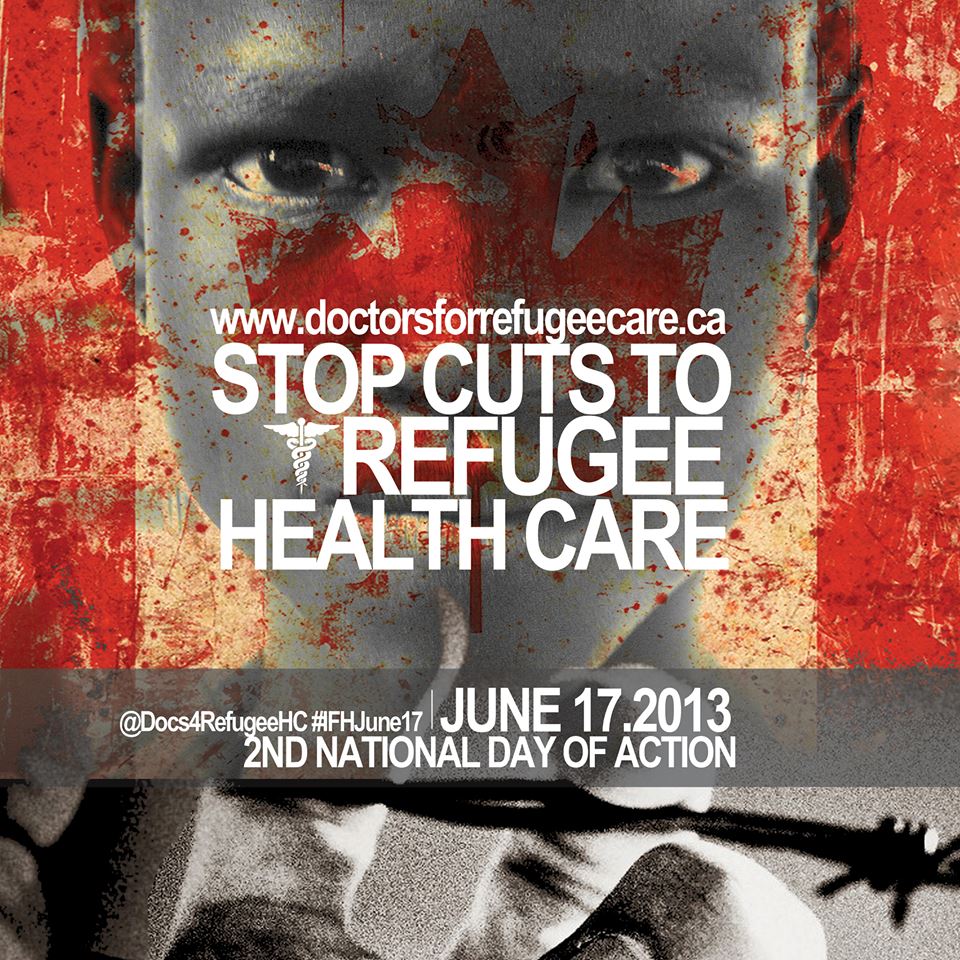Please support our coverage of democratic movements and become a supporting member of rabble.ca.
A National Day of Action is planned for Monday June 17 to protest the Harper government’s cuts to health care for refugees. The Council of Canadians fully supports this action led by Canadian Doctors for Refugee Care “to take the facts directly to the streets and tell Canadians the consequences of the federal government’s cuts to refugee health care.”
Council of Canadians health care campaigner Adrienne Silnicki has commented, “The Harper government’s cuts to health care for refugees include access to vision care, dental care, prescription drugs and mobility devices for all refugees. For many refugees it also includes restrictions on primary and basic health care. This includes medical assistance during emergencies like heart attacks and even during child birth.” Chairperson Maude Barlow adds, “The cuts to the Interim Federal Health Program have deprived claimants of basic and emergency health care, a move that front-line health care workers call cruel and inhumane.”
Impacts in Toronto
The Toronto Star reports, “A year after Ottawa cut health funding for refugees, Ontario hospitals are absorbing the costs or pursuing those patients for unpaid medical bills. …The University Health Network — which includes Toronto General, Toronto Western and Princess Margaret hospitals, along with the Toronto Rehab Institute — expects to foot a total $800,000 bill this year for services delivered to the uninsured in its emergency rooms alone. …Other hospitals say they, too, are absorbing costs — $70,000 at the Toronto East General Hospital, $111,630 at St. Joseph’s Health Centre and $63,000 at St. Michael’s Hospital in the past year.” But, “While some hospitals are writing off these costs in their own budgets, others — like The Scarborough Hospital — are resorting to collection agencies to retrieve the money from uninsured patients.”
Provincial government opposition
Ontario Health Minister Deb Matthews has stated, “We recognize that some hospitals and other health-care facilities have been assuming health care costs that would otherwise have been borne by the federal government… I continue to call on the federal government to reverse their decision. …In the meantime, we continue to consider options available to the provincial government to mitigate the effects of this decision.” In September 2012, the Canadian Press reported, “(Manitoba) Health Minister Theresa Oswald said in a prepared statement that the province doesn’t agree with the cut because it’s hurting families and will lead to longer-term and more expensive problems. …Oswald said the province will add up the bill and send it to the federal health minister.”
This is opposition we will also try to build on when the premiers meet in Niagara-on-the-Lake in late-July and when the health ministers meet in Toronto in mid-September.



